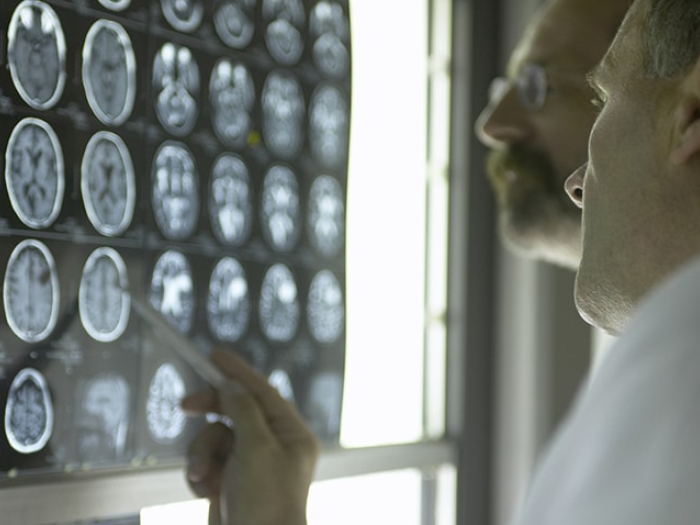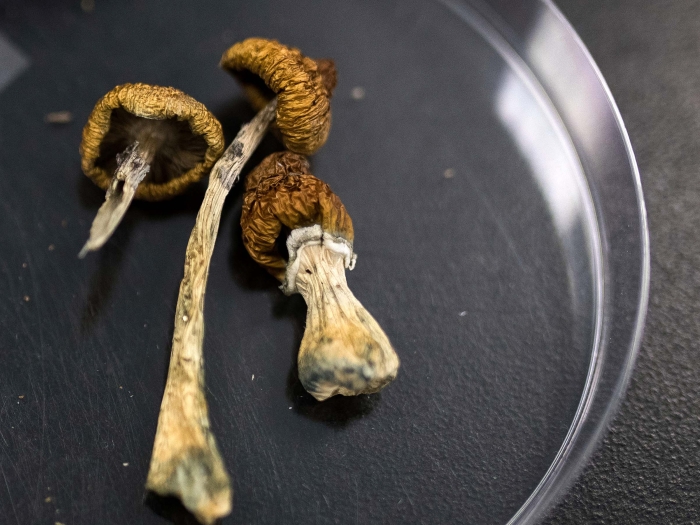People with chronic pain or fibromyalgia who engage in low-risk drinking habits report fewer symptoms and improved function than teetotalers.
7:00 AM
Author |

Many people jokingly refer to their occasional glass of wine after work as medicine. A new study hints at there being some truth to the perceived pain-relieving effects of moderate alcohol consumption.
U-M pain researchers investigated this connection in people seeking treatment for chronic pain or fibromyalgia, a condition that causes widespread pain throughout the body, and can affect mood, cognition and sleep.
LISTEN UP: Add the new Michigan Medicine News Break to your Alexa-enabled device, or subscribe to our daily audio updates on iTunes, Google Play and Stitcher.
For the study, published in the journal Pain Medicine, lead author Ryan Scott, MPH, of the Michigan Medicine Chronic Pain and Fatigue Research Center and his team surveyed 2,583 people with chronic pain and fibromyalgia about their drinking habits, pain severity and physical function. The researchers also examined psychological measures, such as anxiety and depression.
[Low-risk alcohol intake] could be a stepping stone to increased quality of life, leading to more social interactions.Ryan Scott, MPH
Moderate consumption
In the U.S., moderate alcohol consumption is defined as one drink per day for women and two drinks per day for men.
Research has shown several benefits to moderate alcohol consumption, including decreased risk of coronary heart disease, stroke and dementia and increased physical function and quality of life.
MORE FROM MICHIGAN: Sign up for our weekly newsletter
Despite these benefits, this new study found that overall, people with chronic pain tend to drink less than the general population. "People with chronic pain may drink less due to the stigma and because they are being told not to drink while on pain medication," says Scott.
Of the study participants, more than half reported use of opioid medication, which carries serious risks when combined with alcohol.
Moderate drinkers with chronic pain were more likely to be male, white and hold an advanced degree and were less likely to use opioids. They reported less pain, lower anxiety and depression, and higher physical function. Women who were moderate drinkers reported the same state of being.
Interestingly, people with fibromyalgia symptoms who drank moderately reported decreased pain severity and depression but saw no effect on how widespread their pain was or other symptoms such as cramps, headache, fatigue, unrefreshing sleep and cognitive dysfunction.
Increasing GABA
"Alcohol increases gamma-aminobutyric acid (GABA) in the brain, which is why we could be seeing some of the psychiatric effects. Even though alcohol helped some fibromyalgia patients, it didn't have the same level of effect," says Scott.
"You probably need much more GABA to block pain signals and that may be why we're not seeing as high an effect in these patients," he says.
SEE ALSO: Why Shame Keeps Patients from Alcohol Use Disorder Treatment
GABA is a neurotransmitter in the central nervous system responsible for reducing the activity of neurons. Drugs that act on GABA typically have relaxing effects.
Though these findings seem to point at low-risk alcohol intake as a promising analgesic, Scott doesn't anticipate doctors prescribing a drink anytime soon — mainly due to liability, the health risks associated with heavy drinking, and the fact that many first-line pain medications are contraindicated with alcohol.
The team calls for more substantial studies to determine appropriate intake of alcohol for pain relief, especially given the fact that chronic pain patients have a higher prevalence of alcohol abuse.
For now, Scott suggests patients talk to their health care provider about the pain-relieving effects and reduced depression that appear to come along with moderate drinking.
"It could be a stepping stone to increased quality of life, leading to more social interactions," he says. "Fibromyalgia patients in particular have a lot of psychological trauma, anxiety and catastrophizing, and allowing for the occasional drink might increase social habits and overall health."

Explore a variety of healthcare news & stories by visiting the Health Lab home page for more articles.

Department of Communication at Michigan Medicine
Want top health & research news weekly? Sign up for Health Lab’s newsletters today!





